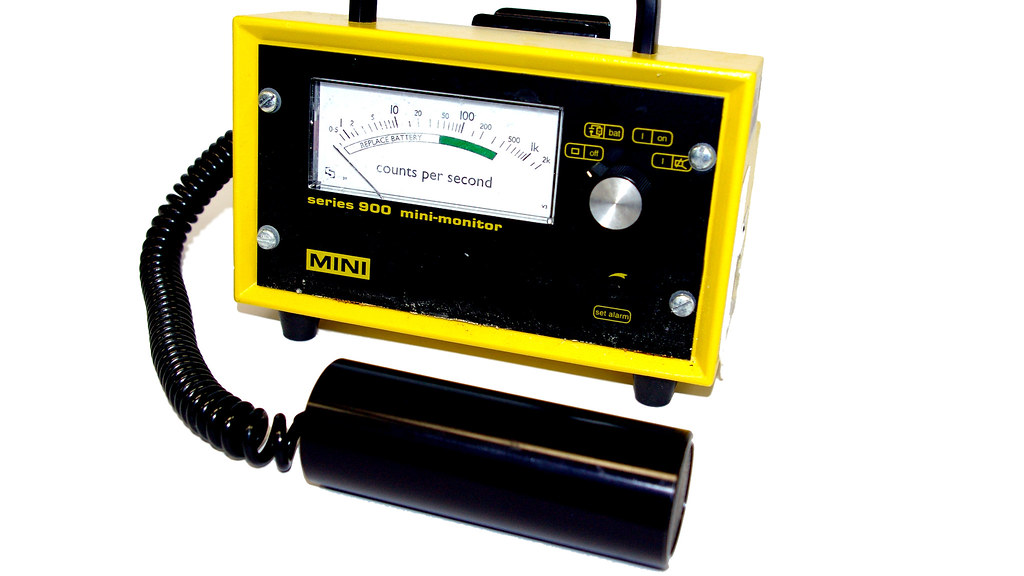All departments nationally that work with ionising radiation require accountability in the form a Radiation Protection Officer (RPO, a more senior role) and a Radiation Protection Supervisor (RPS, a more junior role). The RPO at the University of Bath is Debbie Robarts in Safety, Health & Employee Wellbeing, whilst the RPS for MC² and the department of chemistry is Martin Levere. The roles differ, but essentially the RPS is responsible for ensuring that local rules are followed, that appropriate warning signs are in place and that the monitoring of the site is up to date whilst the RPO has oversight of multiple sites across the whole University.
The ionising radiation on site is from three X-ray diffractometers (SuperNova, Xcalibur, STOE) and two small-angle X-ray scattering instruments (SAXSpoint and SAXSspace) and is monitored by dosimetry badges and a Geiger-Müller tube. Readings of radiation leakage from the X-ray machines typically read zero as the system is sealed – any reading above zero would likely lead to an investigation of the source of the leak. Any incidents or accidents involving ionising radiation would also be investigated by the RPS in conjunction with the RPO.
In order to use the X-ray instruments above students and researchers must complete a form to be registered as workers with ionising radiation. This form is available from the RPS and should be signed by the supervisor and either returned to Martin's letterbox in the department of chemistry (opposite the reception, shared with Anneke Lubben) or submitted electronically to him. The RPS will then sign to say he has supplied a copy of the local rules (an obligation) and pass the form to the RPO for countersignature and to be registered on the system. The signed form will be returned to the worker and a copy stored with both the RPS and the RPO.

